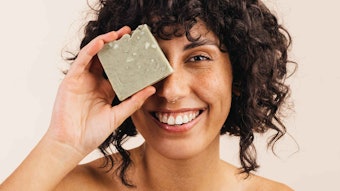When most consumers think about aging, they think about skin. Contrary to popular belief, however, hair also ages. The visible sign of aging hair is lack of pigment, which is a result of hair follicles no longer producing melanin.1 Accompanying this decrease in pigment is a decrease in hair strength and thickness. Although there is no way to prevent hair from becoming gray and thin, there may be a way to slow the process by which it happens. To slow hair aging, researchers are turning to an ingredient that has been formulated into personal care products for quite some time—silicone.
Research
Beth Johnson, senior industry specialist and global hair care technology leader for Dow Corning Corp., is researching ways to use silicones to provide color retention and strengthening properties to hair.
“The trends that are in skin care carry over to hair care,” said Johnson. “Aging hair is drier and wiry. Silicones provide more protection to hair that is losing its strength.” Johnson and fellow researchers chose to test the efficacy of silicones on enhancing hair strength. According to Johnson, amino functional silicones are able to strengthen hair by forming a film along the fiber shaft, essentially sealing in the cuticles. It is hypothesized that the film can provide protection to hair, sealing the hair cuticle, helping prevent moisture penetration into and out of the hair cortex to maintain an optimal moisture level for hair strength.
“Amino silicones have a benefit in enhancing hair strength. The amino silicones have a better deposition on hair [than other silicones], so they can better bind to damaged hair,” said Johnson.
The amino silicones were formulated into dilute leave-on and rinse-off conditioners for its ability to seal in moisture. “If the hair is properly conditioned, less damage is being done to it.
Benefits
Although silicones provide a film to the hair, according to Johnson, they do not build up, which is a significant concern for consumers. Members of Johnson’s research team conducted studies in which hair treated with amino silicones were washed a number of times. “We have shown through different amounts of washing that the silicone does wash off,” said Johnson.
Increasing hair strength can only mean good things to come in terms of hair aging. Johnson’s researchers have recently launched a program that demonstrates the benefits of silicones in enhancing hair strength using single fiber testing, whereby a single fiber of hair is mounted and elongated using tensile measurement.
More consumers are coloring their hair, according to Johnson, and formulators must provide products that ensure long-lasting color. “Hair colorants are known to damage the hair cuticle and leave hair brittle, dull and dry, so consumers seek specialized treatments to maintain healthy colored hair,” Added Johnson. Specialized hair care products, therefore, have been designed specifically for hair treated with permanent colorants.
Studies by Johnson’s team have demonstrated that amino functional silicones enhance hair strength and aid in color retention when incorporated into permanent hair colorants or rinse-off conditioners.
The future of silicones involves branching into other arenas of hair care, according to Johnson. “[The silicone industry] is getting into the styling market. It is developing new methods to see if silicones can provide body and volume,” said Johnson. One thing is for sure, the silicone industry will continue as it has for many years because it continues to reinvent itself, thereby maintaining its youth.










